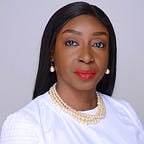Why traditional media organisations aren’t going anywhere anytime soon
A few weeks ago, one of my students was quite upset when I said that if the traditional media had lost its influence, #Megxit would not have happened. He disagreed that traditional media organisations still set the news agenda. The gentleman worked for one of the top general interest blogs in Nigeria before transitioning to public relations. He told me of how he broke a high-profile story before the big media organisations because he had a tip-off which they didn’t. But trust can be a scarce commodity online and that poses a huge bottleneck for online media organisations.
Last week, #BuhariResign trended. Opinions about the personality who spearheaded the campaign were polarised as some Nigerians questioned his motive. Those who opposed asked if it was truly a fight for a cause or a popularity contest — note that the social media influencer added 120,000 followers on Twitter.
Furthermore, some bloggers locally are not ready to ruffle feathers. A few years ago, a blogger told me how certain television content had enriched her life. When I asked her to begin to write about those experiences as the benefits of television, she told me that her audience was only interested in celebrity photos and news. Again, she went on a set visit and praised the company’s production capabilities. Months later, when the company was under attack, I reached out to her and she was too afraid to defend the brand. Sad! She just refused to have a voice. On the contrary, therein lies the power of traditional media organisations — the “Fourth Estate.” The news media’s capacity to speak up enables it to wield significant social influence.
CNN has an interesting campaign running and it ends with the line, ‘… in times of crisis, facts matter most.’
There couldn’t be a truer statement for a time such as this. With the spread of the COVID-19 pandemic, everyone is tuning to the news. And they are looking to rely on trusted sources.
This is not to say that they’re above mistakes and don’t share erroneous reports from time to time, but they are recognised as more trusted sources in times of crisis. The reason is simple. There is structure and accountability. As with most professions, self-regulation comes into play. Journalists are bound by a code of ethics. Some of these principles are of truthfulness, accuracy, objectivity, impartiality, fairness, and public accountability.
The media and agenda-setting
Communication scholars recognised the role of the media hence the mass communication principle called the “Agenda Setting Theory.”
Agenda Setting Theory states that the way a topic is covered by the media could determine what the public perceives as important. That is, the media sets the agenda through emphasis or omission, repetition and prominence of coverage.
To put things in perspective, the media can report that ‘5% of all affected by the Coronavirus die,’ or ‘over 1,000,000 people have been affected by the virus.’ One headline is weightier than the other. An example of omission would mean not reporting how many people have recovered, been discharged and returned home to their loved ones.
In conclusion, until such a time that blogs can set the agenda, traditional media organisations aren’t going anywhere.
The reality is that what fundamentally constitutes news has not changed — and the news media continue to determine what it is. What has happened is that media platforms are evolving. Globally, traditional news media have latched unto digital. Unfortunately, whilst most local media organisations have been digitalised, a good number of their reporters and editors rely on others to upload their stories online, they do not know how to use hyperlinks or tags and some have dormant Twitter accounts.
However, to argue that traditional media organisations no longer set the agenda because some of our journalists haven’t embraced digital media would be to make an error of judgement.
